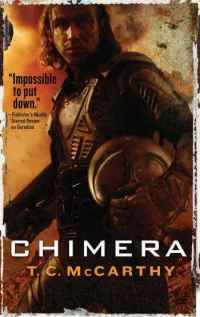Disappeared by Anthony Quinn
 Friday, July 20, 2012 at 6:52PM
Friday, July 20, 2012 at 6:52PM 
Published digitally by MysteriousPress.com/Open Road Media on July 24, 2012
Disappeared takes place in Northern Ireland in the aftermath of the Troubles. For all the political intrigue that gives the novel its foundation, Disappeared focuses on a handful of characters engaged in a quest for the truth. On a slightly larger scale, it is the story of citizens in a divided country striving to recover from events that tore apart their lives, their families, and their nation.
Oliver Jordan, an IRA member suspected of being a police informant, disappeared in 1989, the presumed victim of a kidnapping and murder. Seventeen years later, Joseph Devine, a retired legal clerk and former police informant, is murdered. Father Aiden Fee follows directions to the body and prays for Devine’s soul, as he does for all the informers in his parish who end up dead. Inspector Celcius Daly, pondering the motive for Devine’s murder, finds himself wondering if the death is connected to the recent disappearance of retired Special Branch undercover agent David Hughes, an elderly man who suffers from dementia. He finds another connection in the person of Malachy O’Hare, a firebrand solicitor who has made a career of representing IRA members.
The story begins to take shape when the reader learns the unusual circumstances under which Devine’s obituary was published. The questions that Daly pursues are those that puzzle the reader. Was Jordan killed because he was an informer or was he, as his widow insists, loyal to the IRA? What does Jordan’s son, Dermot, know about his father’s past? Why did Special Branch cover-up the details of Jordan’s disappearance? What is the significance of Devine’s collection of antique duck decoys, to which the story makes frequent reference? Are the ghosts that visit Hughes real or imagined? The questions are answered in a convincing, tightly-plotted story.
While Disappeared has the elements of a mystery, it isn’t much of a detective story. The novel’s greatest weakness is the information dump that comes as the story nears its conclusion. The circumstances of Oliver Jordan’s fate are revealed not through detection but in a rambling (and rather improbable) confession that seems to come out of the blue.
To a surprising extent, the novel hinges on information more than emotion. Despite the human drama that is at the story’s core, I felt detached from it all. Like Dermot, I had an interest in learning the truth about his father’s disappearance, yet I cared little about the novel’s characters. A couple of characters who initially appear to be central to the story all but disappear by the novel’s end, while the others failed to resonate with me.
Despite my failure to connect with the story on an emotional level, I enjoyed reading Disappeared. Anthony Quinn peppers his prose with clever phrases and creates vivid images of the Irish countryside. The ending is disappointing: a belated attempt to turn the novel into a thriller is weak, and quite a bit is left unexplained. When one of the characters tells Daly that he’ll have to live with a bit of uncertainty, that lesson might just as well be directed at the reader. Notwithstanding those concerns, the engaging plot and colorful prose make Disappeared worth reading.
RECOMMENDED



